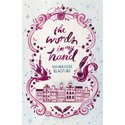 Labels help and labels hinder.
Labels help and labels hinder.
When it comes to finding my daughter’s school hat (which she loses at least once a day) the fact that it clearly has her name on it is a huge bonus.
When it comes to the genre term ‘historical fiction’, the label is a hindrance. A catch-all phrase, usually applied to novels by women.
Some people would have us believe labels don’t matter. Of course they do, because they cause us to pre-judge. The symbolism goes beyond the words themselves.
Take ‘historical fiction’, for example. The term makes me think of twee writing. And women in bonnets. In other words, it’s a genre label that prompts me to make totally unfair and irrational pre-judgements about a novel before I’ve even read a page. More frighteningly, literary critics seem to do it too. This week, the Huffington Post published a piece, quoting a number of them all saying the same thing – historical fiction kind of sucks. Or, as Leo Robson put it more articulately – “Historical fiction has become a byword for middlebrow wasteland.”
But time and time again, I (and the critics) are being proved wrong. All the Light We Cannot See and A God in Ruins were two of my top picks for 2015. Guess what? Both historical fiction. And in reading Guinevere Glasfurd’s The Words in My Hand, I’m pleased to have had my expectations of historical fiction confounded yet again.
At its best, historical fiction transports you to another time, another place. It is an immersive experience. In the case of The Words in My Hand, we are taken back to 17th century Holland – a time where the world was in the grip of a scientific revolution. The earth is not the centre of the universe, said the new thinkers. What? said the people. No way.
It is in this milieu that we meet Helena Jans, a 17 year old dutch maid in the service of bookseller Mr Shepherd. Lodging in Shepherd’s home is renowned French philosopher and scientist, Rene Descartes, and so begins a socially unacceptable love affair between the scientist and the maid.
Yet, Helena is no ordinary servant. A self-taught reader and writer, a talented artist, Helena is also a woman defying the conventions of the day. In an era where the education of women is considered a waste, Helena goes to extraordinary lengths to develop her writing skills. Paper and ink are luxuries. Her skin is her paper. Boiled down beetroots, her ink.
‘… with nothing else to write on, I rolled up my sleeve. Those first words – the words that ran from the inside of my elbow to my wrist – were the most ticklish. When there was no more room, I lifted my skirt and wrote above my knee, then on my thigh. I wrote and I wrote and I wrote.’
The love affair between the maid and the Monsieur is a meeting of minds, despite their vastly differing stations in life. But when Helena falls pregnant, the complications really set in. Descartes is caught between his feelings for Helena and the child (Francine) – and his total devotion to his work. He wants to provide for them, be with them, but in so doing, risks his life’s work – work that is establishing new frontiers in knowledge.
This is a wonderful book. Glasfurd’s research is impeccable. It never overwhelms the story, but supports it, lending the novel great credibility. We know the basic facts of the story are true – Descartes did have an affair with a Dutch maid, and the relationship resulted in a child. Around these scant details, Glasfurd builds a compelling narrative. Her recreation of the austerity of 17th century Holland has an incredible feel of authenticity, supported by the simplicity and spareness of the prose. This is a love story without sentiment. Told completely in the first person POV (Helena’s) Glasfurd’s prose is simple but eloquent, with flashes of brilliance. Even the metaphors are totally voice appropriate. In short, it is precisely how we would expect an intelligent, in-love maid to speak. I believed every word, and for the few days it took to read, happily inhabited the 17th century world. If nothing else, you come away from this book with a renewed sense of just how much has changed in the past few hundred years – a mere blip in the history of time, but a gargantuan leap in terms of scientific and technological progress.
To call this work ‘historical fiction’ is to do it a disservice. There is nothing middlebrow about The Words in My Hand. And, in a weird sense, the meta-narrative of this book is that words really do matter because they are our means of expressing knowledge.
So, at the risk of giving this book another label, let’s call it what it is – literary fiction. And fine literary fiction at that.
For more information, visit Guinevere Glasfurd’s website.
